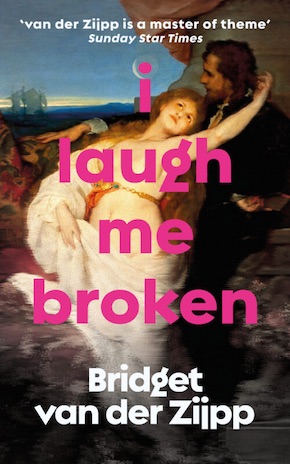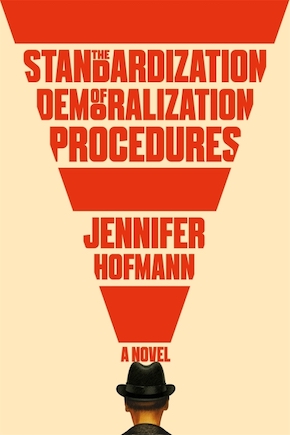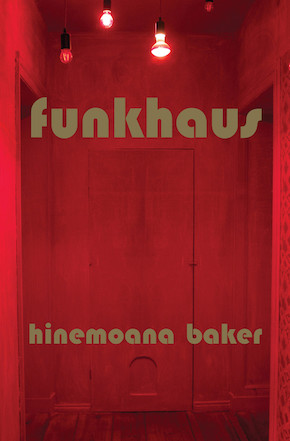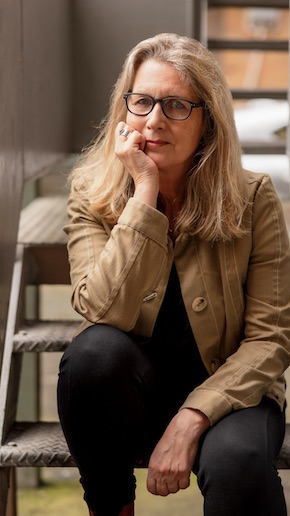Suspicious minds, alternative truths
by Bridget van der Zijpp
Berlin is a city with drama at its heart, and it’s impossible not be drawn in by the charisma of it. I first arrived there on a three-month scholarship to research the book that would become I Laugh Me Broken but then I found I was unable to leave. I was never quite finished with trying to understand what had happened there (until the pandemic sent me back home). The history is physically manifest – you can visit the remnants of the wall, the Holocaust memorial, the Stasi Museum, the underground bunkers, Checkpoint Charlie, the palaces – but the most interesting intrigue is in the subtleties of how the citizens got caught up in such huge actions like the rise of the Nazi party, spy culture and division. These are my favourite 10 books offering insight into Berlin life…
—
A Woman in Berlin
This memoir, about the experiences of a German journalist under the Russian occupation of Berlin after World War II, has an incredibly interesting publication story. It was released anonymously in Germany in 1959 but was ignored at the time. It was too soon, and Germans were not ready to confront the harsh realities portrayed – women who had survived the war being broken and demeaned through gang rapes and forced labour. Based on this poor reception for the book the author, who was later revealed to be Marta Hillers, refused to have it republished in her lifetime. It was rereleased two years after her death in 2003 to critical acclaim, becoming an enduring bestseller.
Stasiland by Anna Funder
Some years after the fall of the wall Anna Funder, an Australian journalist working in Berlin, met a young woman who had tried to escape to the West, was caught and imprisoned and her life had been all but ruined. This encounter set off a quest to understand the former society where the citizens were treating each other so cruelly, with around one in 50 East Germans informing on their own friends and neighbours. Anna Funder even went as far as placing ads in newspapers seeking former Stasi officers willing to talk about their experiences and describes some bizarre encounters with creepy men who, years later, were still lamenting their loss of power. Stasiland is a truly fascinating revelation of how much old East-West tensions still linger.
Go, Went, Gone by Jenny Erpenbeck
A former classics professor becomes curious about some asylum seekers protesting in Alexanderplatz. He realises that despite his education, his life has been
insular and he knows very little about why these men were forced to leave their own countries – where even is Burkina Faso? He draws up a list of questions and at first seeks knowledge as a kind of project, but soon becomes drawn into the urgency of their personal stories. This novel humanised the recent so-called refugee crisis, and the bureaucratic dead-end the asylum seekers found themselves in.
It’s a depiction of how deeply bizarre and moribund the Stasi became in the rules they imposed on the citizens of East Germany and also on themselves.”
The Standardization of Demoralization Procedures by Jennifer Hofmann
This novel follows the life of a Stasi officer on November 9, 1989, the day the Berlin Wall falls. He is trying to solve the disappearance of Lara, a waitress at his regular cafe he is obsessed with, and this triggers flashbacks to his morally complicated entanglement years earlier with an imprisoned physicist. It’s a depiction of how deeply bizarre and moribund the Stasi became in the rules they imposed on the citizens of East Germany and also on themselves. With a dry sense of humour – the tension is driven by the knowledge that by the end of the day this entire regime is about to crumble and come to nothing.
The Berlin Stories by Christopher Isherwood
To understand the Weimar Republic, the decadent Berlin years between the two World Wars, Christopher Isherwood is the man. He went over to Berlin in 1929 to hang out with his mate W.H. Auden, and stayed on for three years. He wrote two slim volumes of his time there – Mr Norris Changes Trains and Goodbye to Berlin which were later published together as The Berlin Stories. Written at a time Nazism began to loom, his observations of all the vice and charm of a city that was then the nightclub mecca of the world ultimately became the inspiration for the musical Cabaret.
Berlin: Imagine a City by Rory MacLean
This is a book that really brings the history of Berlin to life. Each chapter is a portrait of a person that inhabited the city from the 17th Century onwards. While there are large historical figures like Nazi-era propagandist Joseph Goebbels, there are also imaginative portrayals of more anonymous characters like a destititute Moabit factory girl consuming phosphorus match heads. A chapter on David Bowie during the period he recorded Heroes is particularly interesting as filmmaker MacLean personally hung out with him in the 70s. By ingeniously focusing on the individual, an intriguing cumulative picture is generated of a city in a constant state of flux.
Funkhaus by Hinemoana Baker
Funkhaus is a former GDR broadcast centre built in the 1950s, overlooking the River Spree, which now has recording studios and hosts gigs. It is also the title of a poetry collection by Hinemoana Baker, a Māori writer who now lives in Berlin. It was a finalist for the Ockham New Zealand Book Awards and bridges the two worlds of Berlin and Aotearoa New Zealand. The language is melodic, but also transverses some spiky territory. It’s sometimes enigmatic, but resonates with the striking imagery of an outsider trying to understand where she is while dreaming of her home country.
Red Pill by Hari Kunzru
A man very like Hari Kunzru is on a three-month writers’ retreat in a place very like the American Academy in Berlin (which is in Wannsee, an area on the outskirts of Berlin where the Nazi party met to agree on the Final Solution). In Red Pill the residency is at the ‘Deuter Centre’ and the writer begins to feel he is under some sort of creepy surveillance (Kunzru has gone on record to say he was definitely not surveilled while he was in residence in Berlin!). The protagonist is trying to write a book about the notion of the self as understood by German lyric poetry, but at the same time he is worrying about his own futility. I loved the initial sense of recognition in this book, but because Kunzru is such an inventive writer the novel, which is set against the background of the Trump election, it is not so much a disguised personal journey as an imaginative exploration of nihilism and alternative notions of truth. Subject matter that everybody thinks about a lot in Berlin.
As the layers are slowly peeled back on his ugly bullying it becomes clear that the book is an allegory about political oppression.”
The Mussel Feast by Birgit Vanderbeke
In a seemingly simple story, a family is waiting for the father to return from a business trip. The mother has prepared a feast of mussels, not too enthusiastically, and as time wears on the daughter narrator reveals more and more of the father’s horrible domineering nature. As the layers are slowly peeled back on his ugly bullying it becomes clear that the book is an allegory about political oppression, written as East Germany was collapsing, by an author who was born in the East and moved to the West as a child – just like the family in the story.
Responsibility by Nigel Cox
Responsibility plays with noir thriller genre but offers up a lot of observational musings about living in Berlin in the 2000s. An international museums expert becomes embroiled in a criminal plot, a twist on a Nigerian scam, mostly out of boredom, and finds himself having enigmatic encounters on the dark nighttime streets of Berlin. The title refers to the family responsibility he doesn’t want to face up to. The author was a New Zealander who went to Berlin to work on the Jewish Museum, so the expat observations of Berlin life ring true, and while it’s playful it also has a searching moral core.
—
Bridget van der Zijpp is the author of three novels: Misconduct, In the Neighbourhood of Fame and I Laugh Me Broken. Misconduct was shortlisted for the 2009 Commonwealth Writers’ Best First Book Prize, South East Asia and the Pacific Region. It was also shortlisted for the 2009 Montana New Zealand Book Awards Best First Book of Fiction. She holds an MA in Creative Writing from Victoria University. I Laugh Me Broken is published by Gallic Books.
Read more
@Bavdz
@BelgraviaB
Author photo by Siobhan Kelly




